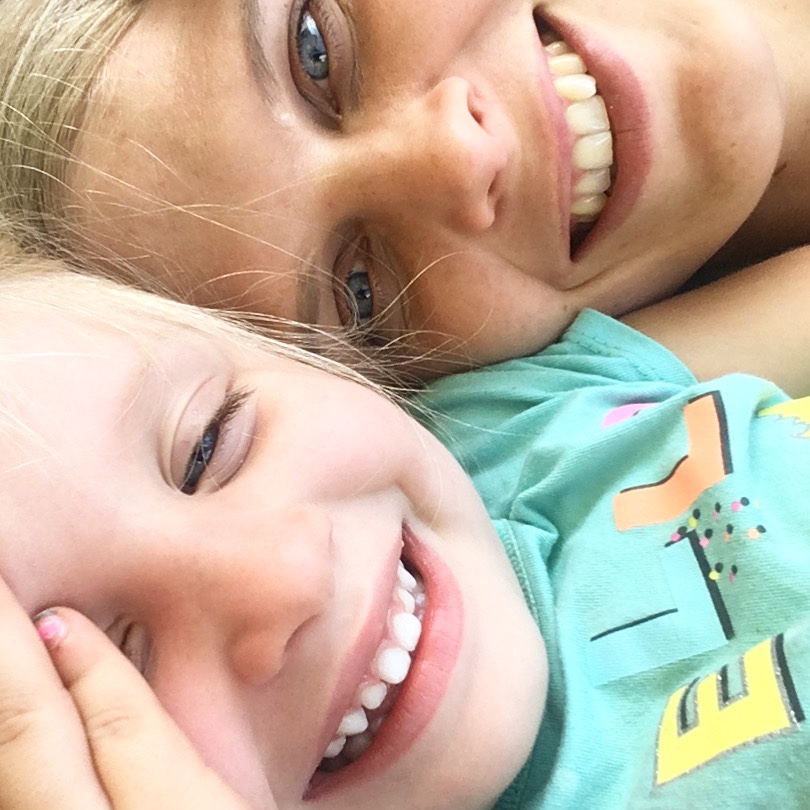Avoiding eye contact

Some things you know, but seem to be forgotten when you need them most. Especially in our world of constant distraction. It is also true that hindsight is the best teacher.
Looking back from this side of the year, I am able to see what had unfolded in me towards the end of 2021. My afternoons with the children after work became increasingly distracted and I heard myself regularly telling my children to wait with their requests, finding ‘no’ as my first response. My phone was a regular retreat in the hope of rest, in which minutes became hours without intention. Not that it helped in any case.
I was also aware of my oldest child becoming increasingly stubborn and unobliging when given tasks and my frustration was growing daily. She seemed not to ‘care’ if I was upset and in many cases was zoning me out when I spoke.
During the December holidays I picked up a random book at a second hand store in the KZN Midlands. This copy had a seriously outdated looking cover and I expected the contents to be fairly outdated as well. However, I chose it for the title: “How to Really Love your Child” by Dr. Ross Campbell.
By this stage I had recognised that I had begun to lose connection with my daughter. She was spending more time with Dad due to various circumstances and would respond to him much better than to me. I knew I needed to build that connection again, but was looking for more practical handles. What I found in this book was truly helpful and has been exactly what I needed.
In summary, Dr Campbell says that he believes that almost all parents love their children, yet often children do not feel loved. This is due to the way we express that love to them. Some children are well behaved and fly under the radar, not asking for much love when they are younger. But the wheels can fall off in teenage years or later on in life when they start seeking their main sources of connection in other places.
In his words:
“It is a fact that most parents have a feeling of love toward their children. It is assumed, however, that parents naturally convey this love toward their children. This is the greatest error today. Most parents are not transmitting their heartfelt love to their children, and the reason is that they do not know how. Consequently, many children today do not feel genuinely loved and accepted.”
I realise this is quite a challenging statement and can make us feel inadequate and reinforce any mom (or dad) guilt we may already feel. However, if there is any truth in it, then best we pay it some attention. Not to sit in guilt, but to make some proactive changes for the sake of those we love. He repeats that it is never too late to change and start showing love to your child in a way that they feel it, even if they are already adults.
Following this are many amazing points on unconditional love and 3 ways to actively show love to our children: Eye contact, physical contact and focussed attention/time. These should not come as a major surprise. And were not to me. However, I realised how often I neglect them.
The one that struck me the most was positive eye contact. In today’s day and age of busyness and phones, this is a rare commodity. We are so often rushing around, trying to make dinner, completing tasks and checking our phones, that it is possible to avoid actually looking directly into our children’s eyes.
Often when we do look into their eyes, it is to give them an instruction or to reprimand them. I can easily recall times when I have used all my self control not to shout at or lose my temper with my kids. But instead I have glared at them, most likely communicating the same level of anger and even possibly dislike of them at that moment.
Ouch. This one hurt.
Just as a plant perks up when given some water, so there is a visible difference when we make a concerted effort to ‘water’ our children with visible signs of love. This positive eye contact does not necessarily need to be during focussed time with them (although some should be). It can be throughout the day. When they come to us requesting something. When they are busy playing and we catch their eye. When we fetch them from school. We can make that connection and look at their eyes in a positive way.
Even when they are misbehaving, we can still use loving eye contact while re-inforcing our boundaries.
The results speak for themselves. This is not the only aspect I have applied. But I have watched my daughter open up, become more responsive, willing to listen, and relating more positively.
I would be lying to you to say I have been totally consistent. But, as I have re-engaged with work and the tiredness grows, it is something I am working on and fighting for. I write this that I may not forget. And to share my journey in the hope that it helps you on yours!